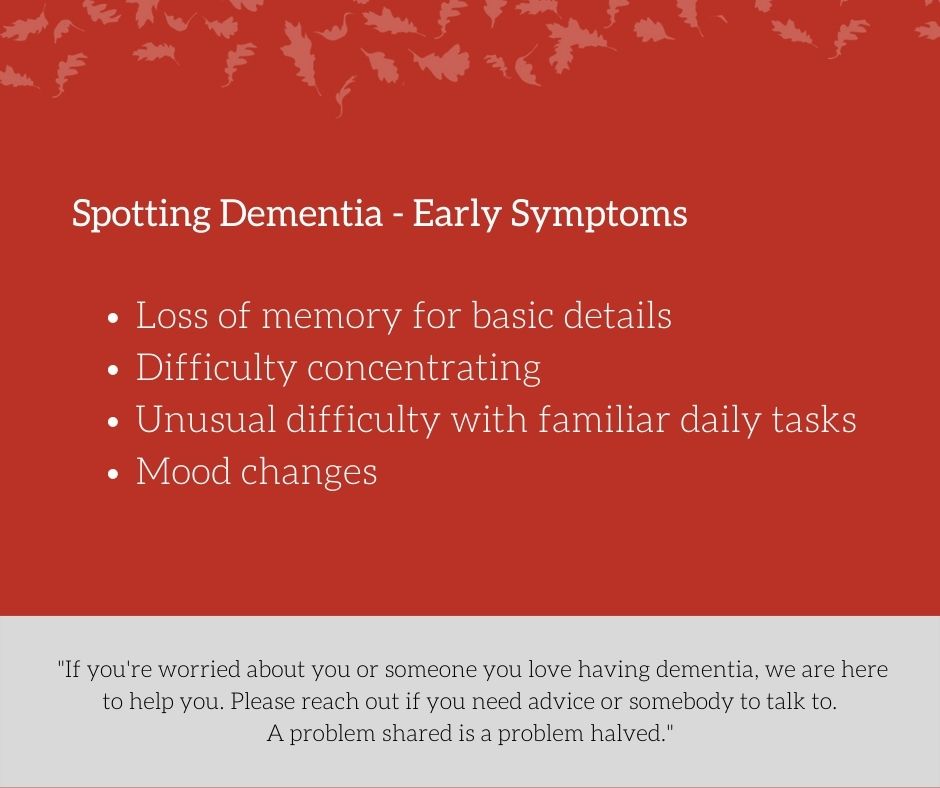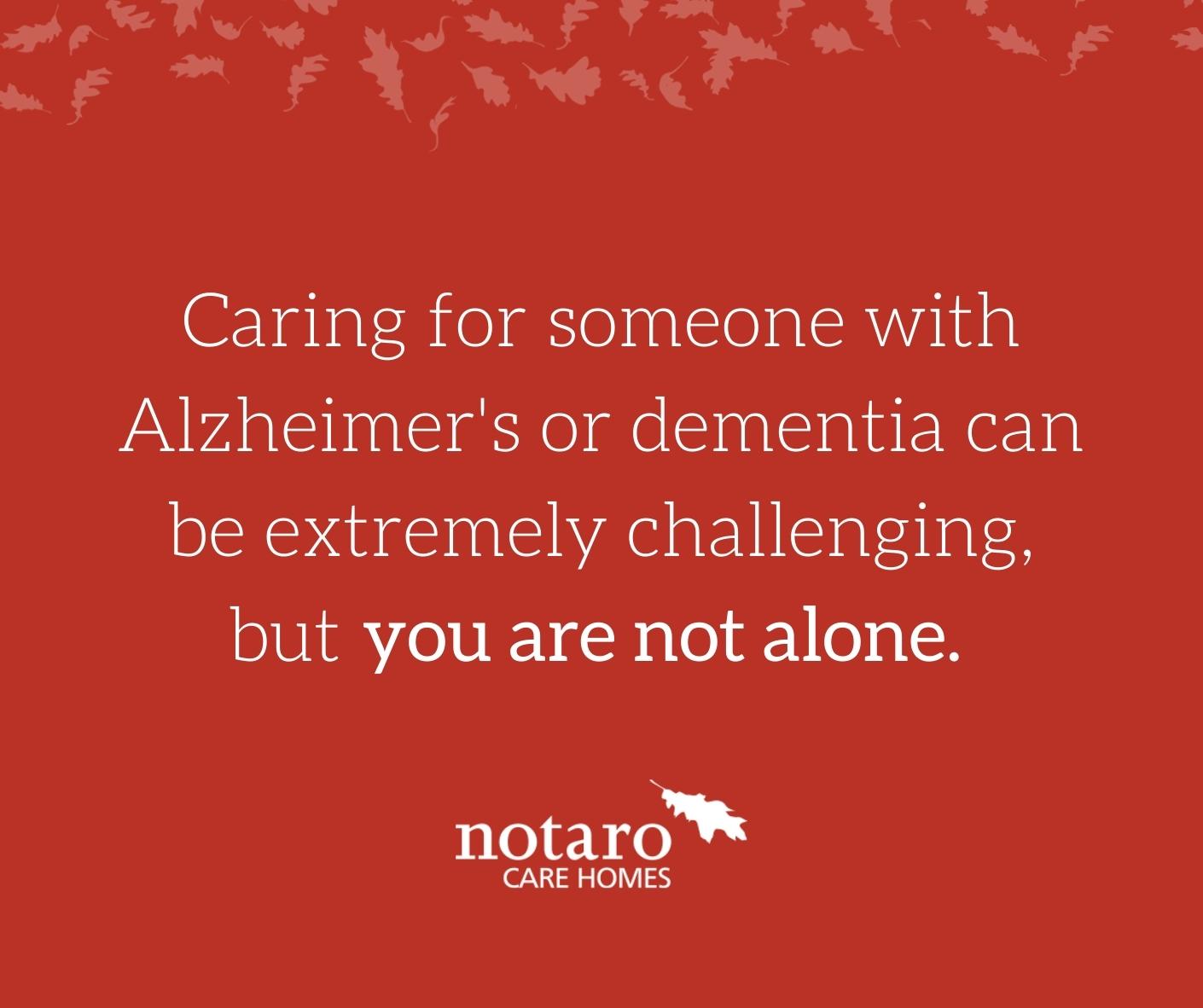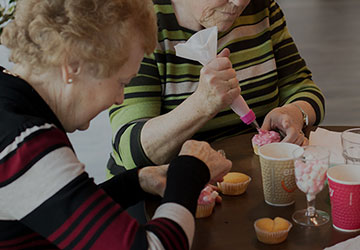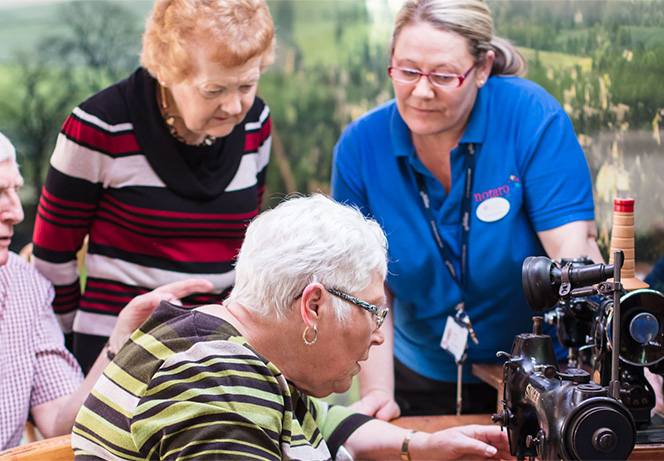At Notaro Care Homes, we understand that dementia is a condition that affects millions of people worldwide. It can be a difficult journey, both for those living with dementia and for their loved ones. Early diagnosis and intervention can help manage the condition and improve the quality of life for the individual. In this blog post, we will explore the early signs of dementia, what to look out for, and the challenges caregivers may face when caring for someone with this condition.
Understanding Dementia
Dementia is a broad term used to describe a group of symptoms that affect memory, thinking, and social abilities severely enough to interfere with daily life. Alzheimer’s disease is the most common form of dementia, but there are other types, such as vascular dementia, frontotemporal dementia, and Lewy body dementia.
While dementia primarily affects older adults, it is not a normal part of aging. Early recognition of the symptoms can play a crucial role in providing proper care and support.
Early Signs of Dementia: What to Look Out For
Recognising the early signs of dementia can be challenging, as they often mimic normal aging. However, some key changes in behaviour, memory, and cognitive abilities may signal the onset of dementia:
- Memory Loss
One of the most common early signs of dementia is forgetfulness, especially regarding recent events. For example, a person might forget names, appointments, or conversations that took place earlier in the day. While occasional forgetfulness is normal, individuals with dementia experience a pattern of memory loss that worsens over time. - Difficulty Performing Familiar Tasks
People with dementia may find it increasingly difficult to complete routine tasks they once did with ease, such as managing finances, preparing meals, or following a recipe. This difficulty can lead to frustration and confusion. - Confusion About Time and Place
Individuals with dementia may lose track of dates, seasons, and the passage of time. They may forget where they are, how they got there, or even why they entered a room. - Changes in Mood and Personality
A person with dementia may experience mood swings, becoming confused, suspicious, anxious, or depressed. They might become easily upset or agitated, even in situations that wouldn’t normally cause distress. - Poor Judgment and Decision-Making
People with dementia may exhibit poor judgment, such as making uncharacteristic financial decisions, neglecting personal hygiene, or not recognising when they are in an unsafe situation. This may also include misplacing valuable items and not realizing they have done so. - Social Withdrawal
As the disease progresses, individuals may start withdrawing from social activities, hobbies, or work. They may become less interested in interacting with friends and family and might isolate themselves, often because they feel embarrassed or confused. - Language Problems
Difficulty finding the right words, repeating oneself, or struggling to follow or join in a conversation are common signs of dementia. This may also manifest in trouble following instructions or remembering the names of common objects.

Challenges of Caring for Someone with Dementia
Caring for someone with dementia can be both emotionally and physically demanding. As the condition progresses, individuals with dementia require more support with daily activities, and caregivers often face various challenges:
- Emotional Strain
Watching a loved one struggle with dementia can be heart-wrenching. Caregivers often experience feelings of grief, frustration, and sadness as they witness their loved one’s cognitive abilities decline. The constant changes in personality and mood can create emotional strain on caregivers. - Physical Demands
Providing care for someone with dementia often involves physical tasks such as helping with mobility, personal hygiene, and feeding. As dementia progresses, individuals may need more assistance, which can lead to exhaustion for caregivers who may also have other responsibilities like work or family commitments. - Behavioural and Psychological Symptoms
Dementia can cause individuals to display challenging behaviours, including aggression, wandering, paranoia, or delusions. These symptoms can be difficult for caregivers to manage, leading to stress and a sense of helplessness. - Communication Barriers
As dementia affects a person’s ability to communicate, caregivers may find it increasingly difficult to understand their loved one’s needs. This can lead to frustration for both the person with dementia and the caregiver, particularly if the individual becomes unable to express themselves. - Decision-Making Challenges
Dementia can impair a person’s ability to make decisions, which may require caregivers to take on more responsibilities, including managing finances, healthcare, and legal matters. This added responsibility can be overwhelming, especially if the caregiver is not prepared for the complexities involved. - Impact on Social Life
Caregivers often find themselves isolated as they dedicate more time to the person with dementia. This can strain relationships with family and friends, leading to feelings of loneliness. Support networks can be vital during this time, but caregivers may feel guilty or reluctant to ask for help.
Early detection of dementia can make a significant difference in the quality of life for both the individual and their caregivers. If you notice any of the early signs of dementia in yourself or a loved one, it is essential to seek professional advice and consider a comprehensive assessment.

Over the Past 40 Years: Our Commitment to Excellence
Over the past 40 years, we at Notaro Care Homes have been building a reputation for delivering the highest standards of dementia and nursing care in our care homes across Somerset and the South West. It’s our fundamental belief that when people feel happy on the inside, their general health and wellbeing are improved on the outside.
At Notaro Care Homes, we focus on bringing out the best in residents. We take great pride in building confidence, fostering friendships, creating communities, and providing individualised care that caters to each person’s specific needs. These values form the beating heart of every Notaro home, ensuring that every individual is treated with dignity, compassion, and respect.
Our approach is simple: happy, confident residents are at the core of everything we do. And it’s this philosophy that allows us to provide the highest level of care in a comfortable, supportive environment where each person feels valued and at home.
We are proud of the care we provide and remain committed to helping those affected by dementia live their best lives. If you are looking for the right care for yourself or a loved one, we invite you to explore how Notaro Care Homes can help.













